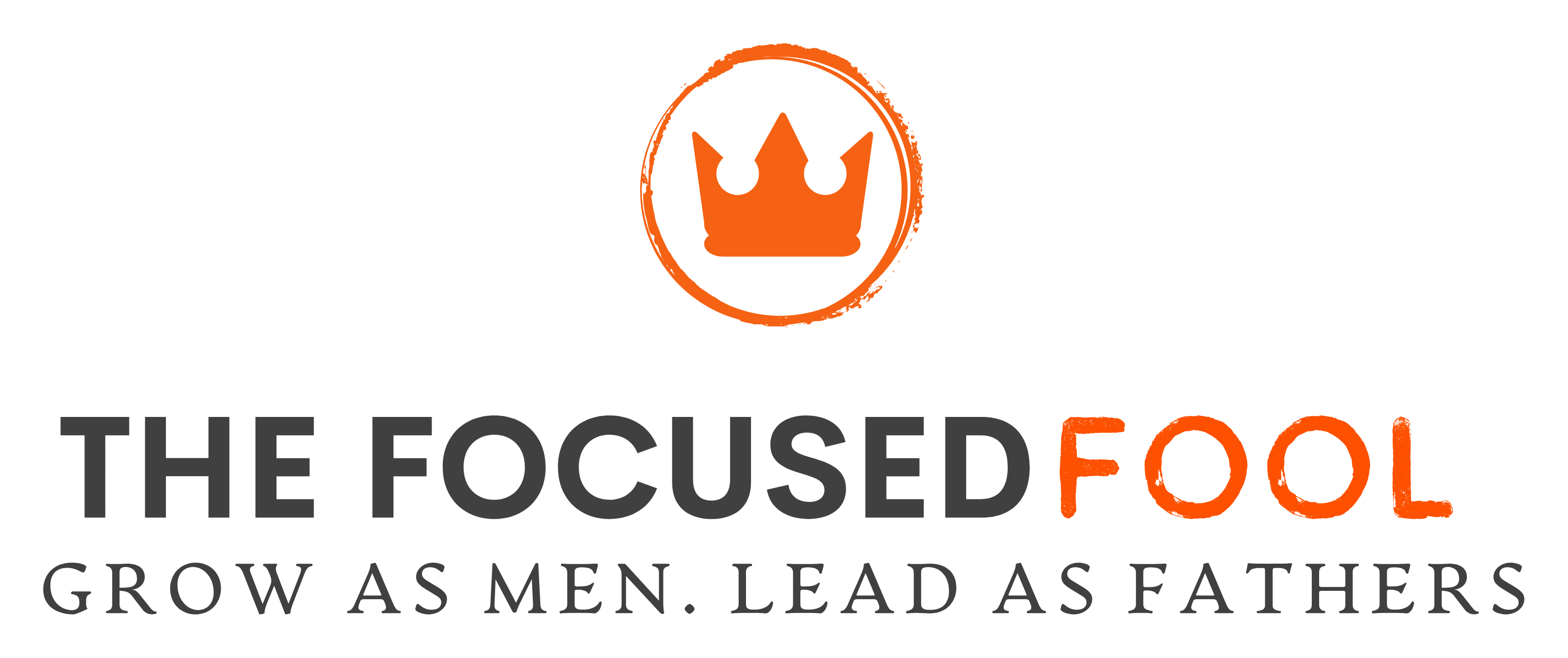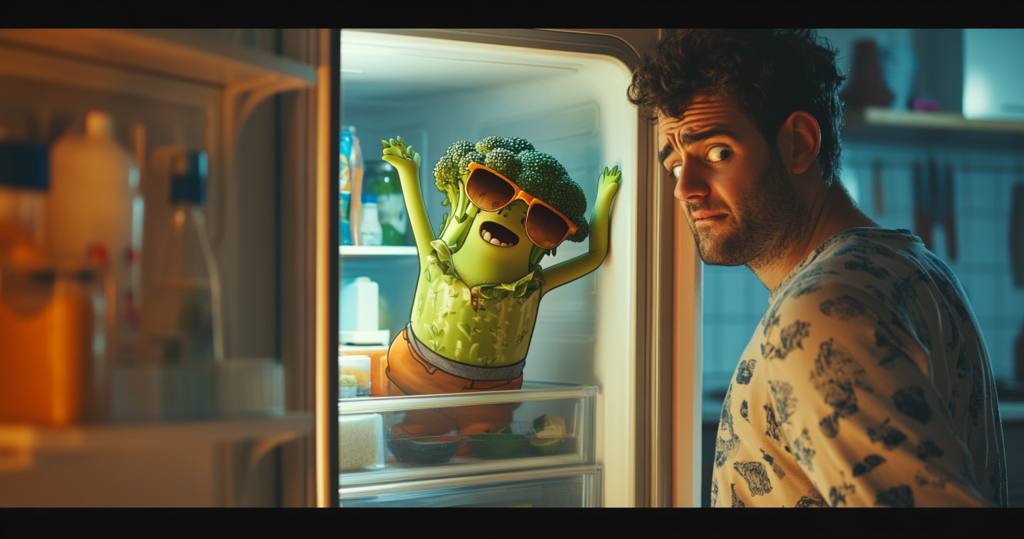Last night, somewhere around Hour 30 of a fast, something strange happened. My vision sharpened—not metaphorically, but literally. I could see more detail. Lines looked crisper. Shadows had definition. I felt more awake, more attuned. I wasn’t just looking—I was seeing.
The world around me hadn’t changed, but something in me had. And it was happening during what most would consider a physical low point: no food for over a day, nothing but water and black coffee since the day before yesterday. I should have been foggy, irritable, counting the minutes until I could eat again. Instead, I felt strangely, uncomfortably alive.
For a brief moment, I wondered if this was the beginning of those hunger-induced hallucinations people warn you about. “Coming soon: talking refrigerators and dancing broccoli!” But no, this was different. My senses were genuinely heightened, not spiraling into food-deprived madness. Though I will admit, the leftover mac and cheese in the fridge did seem to be calling my name a little more melodically than usual.
The Strange Science of Emptiness
For context, I’m in the middle of a Protein-Sparing Modified Fast (PSMF), which is basically a very low-calorie, high-protein approach that preserves muscle while accelerating fat loss. The 32+ hour fast wasn’t even part of the plan—it just happened when life got busy and I decided to see how far I could push it.
Trying to explain this to friends has been… interesting. “No, I’m not sick. Yes, I’m doing this on purpose. No, I haven’t joined a cult.” The concerned looks I get when declining lunch invitations make me feel like I’m confessing to a crime. “I’m voluntarily not eating” apparently translates in normal-person speak to “I’ve completely lost my mind.”
I’m not a doctor or nutritionist (a disclaimer my wife insists I make clear whenever I talk about my “experiments”), but I’ve read enough to understand the basics. When we stop eating carbs our glycogen runs out, and then your body turns to fat for fuel, producing ketones. That metabolic switch is why many report mental clarity, focus, even heightened senses. It’s ancient biology—what helped our ancestors hunt or survive without food.
Our ancestors surely experienced this regularly. They didn’t have 24/7 access to food. They hunted, gathered, sometimes went without. Those periods of emptiness weren’t seen as deprivation—they were just part of life. And perhaps those periods of physical emptiness came with unexpected gifts: heightened awareness, sharper senses, clearer thinking. Exactly what you’d need when you’re hunting or avoiding becoming something else’s meal.
But how often do we modern men experience true hunger? Not the “it’s noon so I should eat” kind, but the deep, ancestral emptiness that forces our bodies to adapt? Rarely, if ever. We’re full. Always full. Of food, noise, information, obligations, worries, and distractions.
The Fullness That Blinds Us
It made me wonder: What else do I miss when I’m too full, too busy, too distracted?
There I was, seeing more clearly because I had less in me. And it struck me as a perfect metaphor for much of what holds us back in life. We think we need more—more information, more resources, more time—when often what we really need is less. Less noise. Less distraction. Less of the stuff that fills us up but doesn’t nourish us.
I’m not talking about some extreme minimalist lifestyle where you give up all possessions and pleasures (though I respect those who go that route). I’m talking about strategic emptiness. Purposeful pauses. The wisdom to sometimes not fill every moment, every silence, every hunger.
Consider the ways we stay constantly “full”:
- We wake up and immediately fill our minds with news, social media, and emails
- We fill awkward silences with words, jokes, or stories
- We fill emotional discomfort with food, drinks, or mindless scrolling
- We fill our calendars with back-to-back commitments
- We fill our children’s schedules with activities, lessons, and playdates
- We fill our homes with stuff we don’t need and don’t really want
And what’s the result of all this fullness? We miss things. Important things. We don’t see clearly because we’re too stuffed with inputs, experiences, and distractions. Our mental and emotional digestive systems are perpetually overloaded, trying to process more than they were designed to handle.
The Two Versions of Dad
Let me paint a picture of two versions of myself as a father:
Version 1: Overstimulated Dad This guy wakes up, immediately checks his phone, and starts the day already behind and reactive. He multitasks through breakfast, half-listening to his kids while scanning headlines. He’s chronically rushed, often irritable, and constantly feels like he’s missing something important. He’s physically present but mentally elsewhere. He doesn’t mean to be distracted—he just is. At the end of the day, he collapses, exhausted but unable to point to meaningful moments with his family. He was there, but was he really there?
Version 2: Clear-Eyed Dad This guy starts his day with five minutes of nothing—no phone, no news, no planning, just breathing and setting intentions. He’s still busy (he has kids, after all), but he’s intentional about creating small pockets of emptiness throughout his day. He eats meals without screens. He drives without podcasts sometimes. He sits with his kids and just watches them play without feeling the need to direct, correct, or entertain. He’s not perfect—far from it—but he’s present enough to notice the little miracles that happen every day with his family. He sees his children, really sees them.
I wish I could tell you I’m consistently Version 2. I’m not. But I’m working on it, and that moment of clarity during my fast reminded me why it matters so much.
The Less You Need, The More You See
That’s the paradox I keep coming back to: The less you need, the more you perceive.
When I’m not constantly filling myself with food, distraction, noise, and busyness, I see more clearly. I notice more. I feel more. I connect more deeply.
And isn’t that what we all want as fathers? To really see our children, to really be present for the fleeting years we have with them under our roof? To lead from a place of clarity rather than reaction?
I’m starting to think that true focus isn’t about trying harder to pay attention. It’s about removing the things that make attention impossible. It’s about creating space—in our bodies, our schedules, our minds—for awareness to flourish.
Making Space for Clarity
You don’t need to do a 36-hour fast to experience this kind of clarity (though if you’re medically able and curious, it’s an interesting experiment). Full disclosure: my mindfulness attempts often end with me making grocery lists in my head or mentally rehearsing arguments I’ll never actually have. I once tried to meditate for 10 minutes and spent 9 of them wondering if I remembered to switch the laundry. We’re all works in progress.
There are smaller ways to create empty spaces in your life:
- Fast from inputs before outputs. Don’t check email, news, or social media first thing in the morning. Give yourself at least 30 minutes of output—thinking, writing, planning, creating—before you let the world in.
- Drive in silence sometimes. No podcasts, no radio, no phone calls. Just you, the road, and your thoughts. You might be surprised what surfaces when you’re not drowning it out.
- Sit with your discomfort. When you feel bored, anxious, or restless, resist the urge to immediately soothe it with food, screens, or busyness. Just breathe through it. Often, our best insights come when we stop running from uncomfortable feelings. Fair warning: the lengths we’ll go to avoid our own thoughts are astounding. I once reorganized my entire garage rather than sit quietly for 15 minutes. Apparently facing existential questions is scarier than finding out what’s been growing behind the paint cans since 2017.
- Be selective about what you consume. This applies to food, media, relationships, and commitments. Ask yourself: “Is this nourishing me, or just filling me?”
I’m not suggesting we all live like monks who renounce all worldly pleasures or that enjoyment is somehow wrong. The goal isn’t deprivation—it’s perception. It’s creating enough space to actually see what’s already there.
The Clarity We’re Seeking
As fathers, husbands, and leaders, we carry a mental load that can be overwhelming. We’re responsible for so much, and it’s easy to get lost in the noise of everyday life. But what if the clarity we’re seeking isn’t found by adding more tools, techniques, or information? What if it’s found by subtracting?
What if the answer to “How can I be a better father?” isn’t another parenting book or productivity hack, but simply creating more empty space to truly see and hear our children?
Clarity doesn’t always come when you try harder. Sometimes it comes when you stop consuming long enough to see what’s already there.
I’m not claiming to have mastered this. That moment of visual clarity during my fast was just a powerful reminder of what’s possible when we empty ourselves of excess. What might you see—really see—if you stopped filling every moment? What conversations might you have with your children if you created more empty space for them to fill?
I don’t know exactly what you’ll discover. But I suspect it will be worth seeing.
Try This Today: Block 15 minutes with no phone, no inputs, no distractions—just presence. Sit with yourself or with your child, and simply observe. Then send me a note about what you noticed: [email protected]
The Focused Fool Newsletter – Growing as Men. Leading as Fathers.


Leave a Reply